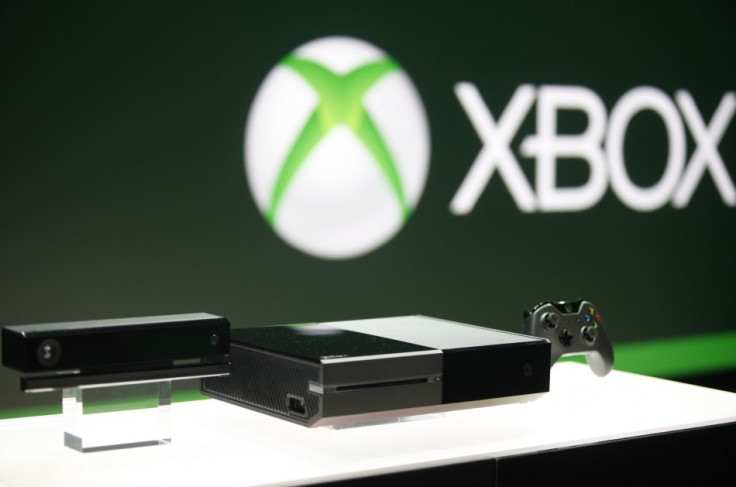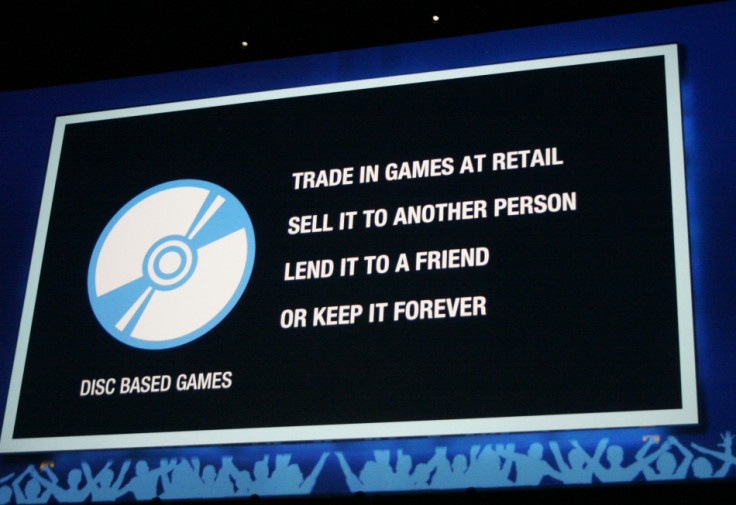Opinion: Restrictive Xbox One Policies Were Not All Bad
Microsoft has binned the controversial policies surrounding used games and DRM on the Xbox One; video games reporter Edward Smith asks if this is a good move.

No-one wanted to use seatbelts. The iPad was just a big iPhone. Opal Fruits was a much better name than Starburst. People freak out when companies announce new products and new ideas. In the case of the Xbox One, Microsoft was proposing not just to reinvent its own machine, but rejig the way we consume games as a whole. For better or worse (probably worse) it was an industry changer - it was going to prove there were new ways for users to purchase and play games.
And now it's dead, because people won't wear seatbelts. I've no doubt that Microsoft's policy on used games and DRM would have been rotten for the consumer - as an analyst pointed out to me this morning, it was a console designed not for players but in the interest of "Microsoft's business strategy only" - but who knows what it could have done? I really liked the idea of being able to access games via the cloud at a friend's house, and I've seen a lot of AA studios close down in the past year because used games and piracy have sucked them clean. I know the measures Microsoft was proposing were unsavoury, but I also know that, from where a lot of game developers are sitting, they were necessary: "I want developers who worked their asses off to see money on every copy of their game that is sold instead of [retailer] Gamestop," tweeted industry stalwart Cliff Bleszinski. "F**k me, right?"
Absurd
But don't get me wrong - a lot of what Microsoft proposed was absurd. You can only lend discs to people that have been on your friends list for 30 days or more? The hell is that? Now that Sony has announced its plans to freely allow used games on the PS4 with no online requirements, it feels like Microsoft is backing down. It feels like the company knew these ideas were peculiar and was hoping for some validation from other console makers: If Sony had announced the PS4 had similar restrictions, I think Microsoft would have kept them in place on the Xbox One.
It was, by all accounts, a bad move by the Xbox guys. I'm not convinced that used game restrictions and DRM [digital rights management] are a bad thing inherently - as I've explained, I think they're both about to become a necessity - but Microsoft botched their introduction so hard, so, so hard. It was too soon, I think. Digitally downloading games onto consoles has only been a thing for one console generation. I think we need another to play out before consumers will be ready to relinquish discs; to accept digitisation fully and the new rules and restrictions that come with it.

I think that's probably why I'm cross this morning: Microsoft's proposals were a necessary counterweight to growing production costs, a counterweight that's now been demonised and chased out thanks to shoddy handling. I like that Microsoft tried to lead consumer tastes rather than follow them, since the latter is why we have 15 Final Fantasy games, all of them the same, but I think the company made too many assumptions about its consumer base - I think Microsoft thought too highly of us all.
Entitled
Gamers are entitled - they aren't ready to give up their RIGHTS just for the sake of some game developer's income. But it's exactly those gamers who are going to complain when Halo 7 comes out, who are going to accuse the game industry of being adverse to risk when faced with more sequels, DLC and micro-transactions. They won't realise that it is they who are adverse to risk. Microsoft took a risk in offering developers, not consumers the benefit of the doubt. The company was far from saintly with its DRM policies, but at one level at least, it aimed to give game makers a fairer whack, a fatter wedge of profit so that they could continue making games, continue taking risks on new IPs, rather than coughing up sequels they knew would get bought.
It's consumers who have shown themselves to be reticent to change, but when the money starts to dry up and, in response, publishers shrink their portfolios down to one maybe two core franchises, watch gamers accuse Microsoft of unoriginality.
© Copyright IBTimes 2025. All rights reserved.






















